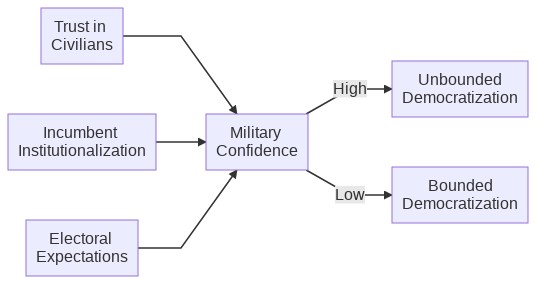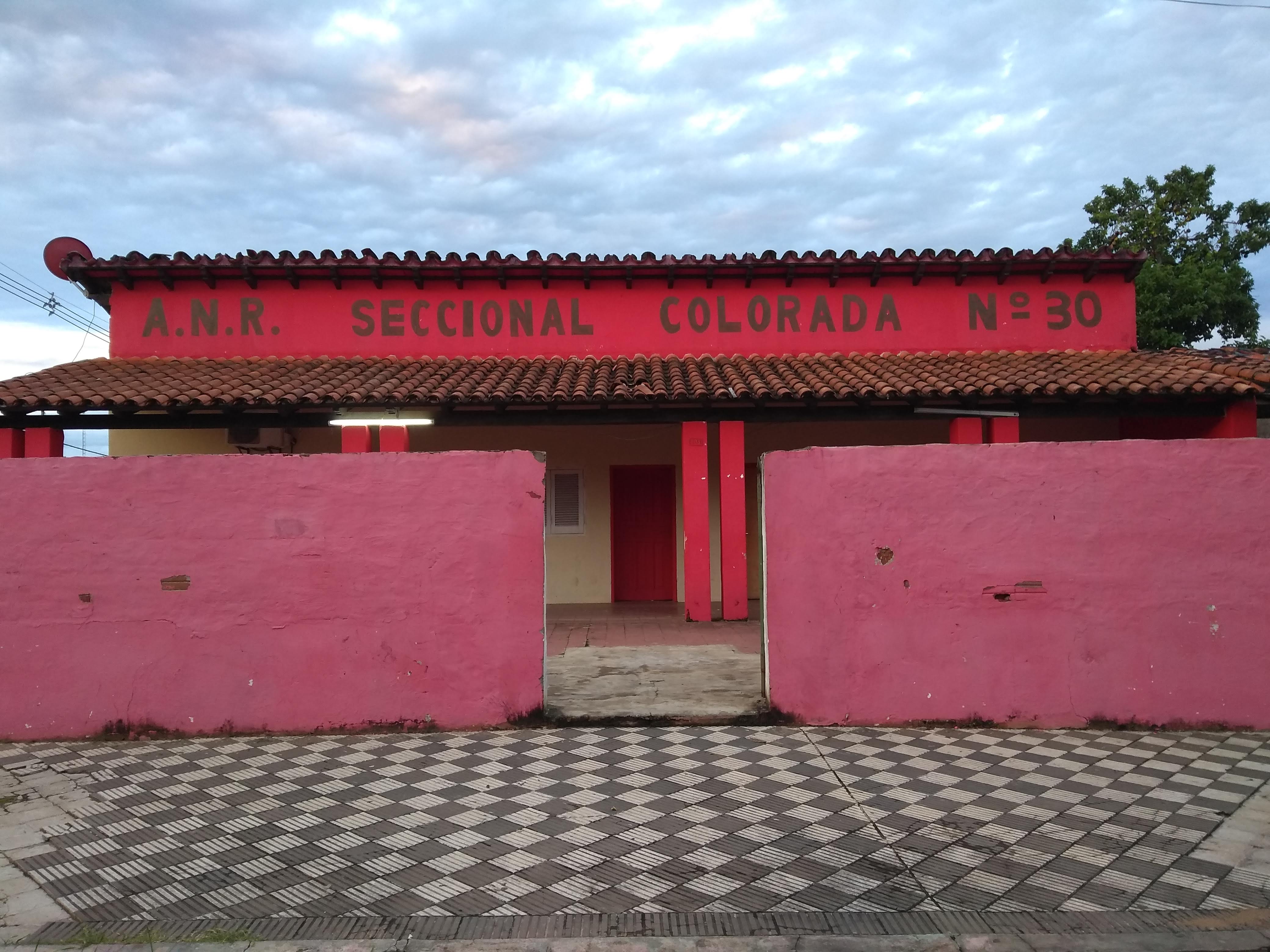Research
My research agenda focuses on authoritarian institutions and how they affect the exercise of power within authoritarian regimes, regime transitions, and democracy. Specifically, I focus on two key actors which are critical to political outcomes both when regimes are stable, and during transitions: the military and the authoritarian incumbent party. My dissertation keys on how the relationship between these two actors affects the willingness of the military to set parameters on the scope of political institutions. When the military influences the development of political institutions (e.g. requiring reserve domains, prohibitions on certain parties, or specific electoral institutions) it results in what I call bounded democratization.
In the dissertation I argue that militaries are willing to allow unbounded democratization, or the ability of civilians to design political institutions without the military interference, when their confidence in civilian parties, specifically the authoritarian incumbent party, is high. When their confidence in the incumbent party is low, the military is more cautious about democracy and uses its power to set terms on how power can be exercised following a transition to civilian rule. The military’s confidence in incumbent parties is a function of the trust between the military and the party, the degree of party institutionalization, and the electoral strength of the party. These three factors are antecedent conditions, existing prior to the failure of the regime, and affect the strategic decisions of the military during a regime transition. This is demonstrated in the figure below.

I find that authoritarian incumbent parties are key in providing the conditions for both authoritarian regime durability and breakdown. When authoritarian incumbent parties are strong, and do not need alternative partners, authoritarianism endures. When these parties rule with other partners, such as the military, the dynamics are quite different. When the military rules, the presence of a strong, well-institutionalized, political party, which shares a vision of the national project with the military, democratization on civilian terms is more likely.
Other research I am conducting explores the role these authoritarian incumbent parties have on democratic development. In two difference projects, I explore both the role of the authoritarian incumbent party has on party system development, and the political prospects of former military officers. I find that when authoritarian incumbent parties are institutionalized and rule prior to the end of authoritarianism, they use their power to undermine the development of the party system. When these parties form just prior to, or following, democratization, and do not rule under authoritarian conditions, party system development improves. This work can be found in Working Papers for reference.

I also find that these parties are key to keeping former military officers sidelined following a transition. The authoritarian incumbent party’s institutionalization prevents former officers from capturing the party following democratization and allows civilians to keep control of the party. When these parties electorally strong, former officers cannot simply start their own parties and compete electorally. These two factors combined affect whether former officers will be sidelined, or whether they can proliferate within the political system.
In future research, I will explore how militaries have altered their behavior in setting parameters on civilian rule. In preliminary research, I find that militaries have shifted from restricting the franchise to tailoring legislative and electoral institutions that tilt the political playing field in their, or their civilian allies’, favor. I will also explore how some militaries use their power to bind democracy when they act as caretakers. In recent literature, many have explored the “good coup” hypothesis and whether military rule can result in more democracy. Using the concept of bounded democratization developed in my dissertation, I explore whether these coups result in democracy, but on the military’s terms, or whether these coups free civilians to pursue democracy unencumbered.
To conduct my research I use a variety of methodological tools, including qualitative and quantitative approaches best suited to answer my research questions. To date, I have training and practical experience in archival, interview, comparative-historical, regression, and experimental methods.
